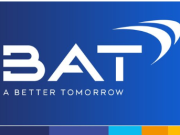PMI’s IQOS is the most commonly sold heated tobacco product. The battery operated smokeless alternative to combustible cigarettes, works by heating sticks containing tobacco leaves. These refills which look like short cigarettes, must be inserted into the main device and are heated up once the product is switched on.
The device was successfully launched in Korea in 2017. “Philip Morris has invested about 3.4 trillion won since 2008 in developing a tobacco product that ‘doesn’t burn.’ While anti-smoking policy should of course continue to be implemented, we think as much that it’s our job as a tobacco company to create a less harmful product for those who wish to smoke,” said Chong Il-woo, the managing director of Philip Morris Korea, at a media briefing in Seoul back in May.
IQOS’s successful launch in Korea
However, a study released by the Ministry of Food and Drug Safety in 2018, claimed that the heated tobacco products contained more tar than cigarettes and the same nicotine content. To this effect, the ministry had concluded that there was no evidence indicating that heat-not-burn devices are any less harmful than ordinary cigarettes.
The MRTP status granted by the FDA
Therefore, the MRTP status granted by the FDA brings renewed hope to the manufacturer. PMI Korea CEO, Paik Young-Jay, expressed his hope that the FDA’s favorable decision will finally bring about much the needed changes in Korea’s regulations, pertaining to the products.
“The MRTP classification substantiates PMI’s claims that the IQOS benefits public health as a whole,” said Paik. “This decision can set the basis for policymaking concerning better alternatives products, and help adult smokers switch from regular cigarettes to scientifically proven heat-not-burn tobacco as soon as possible.”
“The recent classification of IQOS as MRTP results from the rigorous review of independent scientific studies, which analyzed the device’s ability to reduce exposure to harmful or potentially harmful chemicals to users compared with conventional cigarettes,’ he added.
The ministry report findings out of context
Paik pointed out that even the ministry’s report had confirmed that nine substances recommended for reduction by the World Health Organization were lower by more than 90% in HnBs in comparison to cigarettes. “However, the ministry published a study focusing only on the tar level,” Paik said. “Tar refers to the total amount in tobacco emissions, not a single substance. Still, the ministry compared only the tar’s weight as if the entire tar was a harmful substance.
“The FDA’s decision is an important example of how governments and public health agencies can regulate heat-not-burn products and cigarettes differently to improve public health,” Paik said. “The FDA has reached its conclusion to approve ours as the first risk-reducing tobacco products even in the absence of long-term epidemiological evidence.”
Read Further: Korea Biomedical Review












